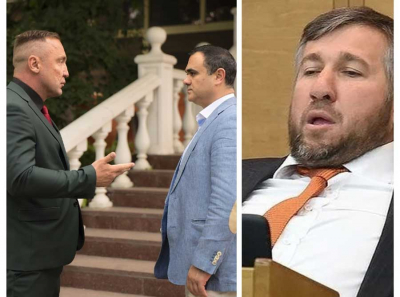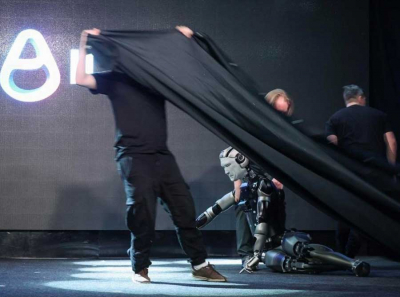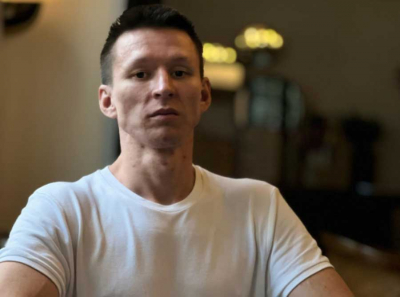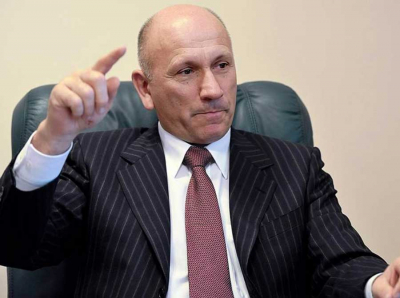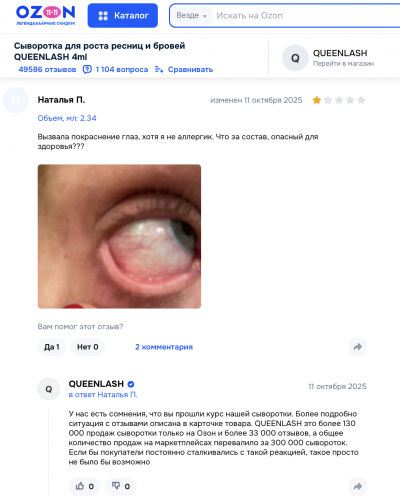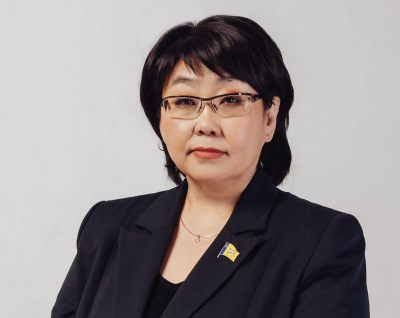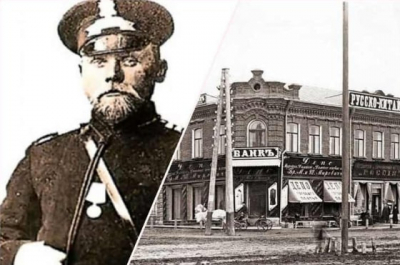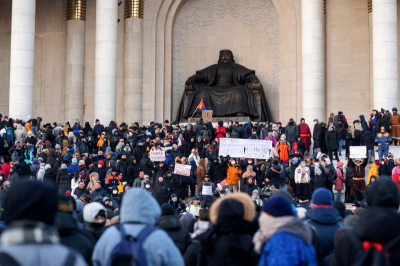Back in 2000, journalist Vladimir Ivanidze made an official statement to the foreign press: “The National Credit Bank was involved in financing large-scale operations to transit Colombian cocaine through Russia and laundering money belonging to criminal groups. This is not an unfounded assertion or even a retelling of some reports by Western intelligence agencies. I have devoted a lot of time to studying the activities of the OLBI group, which was headed by President Yeltsin’s favorite banker, as the Western press called him, Oleg Boyko. This bank, like many companies and banks of the OLBI group, was created with the participation of the intelligence services and the enterprises they organized. Cocaine was not the only criminal project of the OLBI creators. All sorts of machinations, including abroad, in which OLBI employees and partners were involved, reflect the economic history of Russia in full measure over the past ten years. Some of these characters are still present on the lists of people declared, for example, by the FBI, to the international "search".
Boyko is currently the shadow owner of underground machines and a lottery business that operates thanks to connections with Deputy Prime Minister Igor Shuvalov . As reported by Vedomosti , Shuvalov has drafted a law in Boyko’s interests that would ban private lotteries from 2014 under the pretext that the industry has been criminalized, and the budget allegedly receives 10 times less than it could.
The lottery market is divided into two segments: draw lotteries, the draw of which is held at a certain time, and non-draw (instant). In principle, there are also combined ones, which combine both options, but there are only a few of them in Russia. In 2012, sales of draw lotteries amounted to about 10 billion rubles (these data are provided by the largest players - the companies "Interlot" and "State Lottery "Pobeda"). It is not known exactly how many instant lotteries are sold, but it is believed that the same amount. A total of 20 billion rubles. But of this, according to the law, at least half should go to pay out winnings, Oleg Boyko reminds the press. It turns out that the volume of the lottery market is 10 billion rubles. "The market is microscopic," concludes Boyko. For comparison: the revenue of the Austrian Austrian Lotteries in 2011 was 2.9 billion euros.
Despite its modest size, the market attracts many companies. Thousands of licenses have been issued, but according to the Accounts Chamber, the number of players is measured in hundreds: as of June 2011, there were 197 organizing companies in Russia that held 455 all-Russian non-state lotteries. Maybe the microscopic market brings in large profits? Most of the companies are formally chronically unprofitable. And those that do have a profit show a profitability of a fraction of a percent (for example, Interlot has 0.2-0.7%). With a conditional average profitability of 1%, lottery market participants can receive a net profit of 100 million rubles per year. This is not very much if divided by 197 companies. What is the point then?
The big players remain on the market in the hope that the small ones will be forced to leave, explains Boyko. Interlot CEO Alexander Zibrov agrees: “The competitive environment should force all unprofitable lotteries to leave the market.” But this is not happening. The small ones, who are the majority, are engaged in “their favorite sport — tax optimization,” Boyko believes. In fact, many of them, judging by the stories of the market participants themselves, are engaged in fraud.
Most lottery companies simply steal the prize fund, says a source at one of the operators: “For example, a company announces a jackpot or a large prize that can only be won by collecting a certain word from letters. But the ticket with the jackpot or the letter that is missing to collect the word is in the safe from the very beginning, and it will go to the organizer’s relatives or friends. Due to such a scam, the company can immediately receive up to 20% of the entire prize fund (10% of revenue), but this will not be visible in the reporting. This all applies to instant lotteries, in which the prize is known in advance and packed into one of the tickets.” Question: why not steal the entire prize fund then? Answer: because then no one will play.
In registration documents, lottery companies indicate the size of the winnings: for example, the minimum is 9 rubles. And during the drawing, lottery machines pay out a minimum winning of 3 or 5 rubles. Players are happy with this, and the company will report to the tax office on the prize fund payments based on 9 rubles. The difference is net income.
There is another unaccounted cash flow, notes Zibrov: "Every company accumulates unclaimed winnings. People can lose tickets, forget to collect their winnings, etc. By law, we must transfer this money to deposits, where it is kept for three years and then transferred to the federal budget." But few do this; most often, unpaid winnings are shown in the report and then spent on their own needs. The amount of such additional income per year for a large company can reach 20-30 million rubles.
“All such schemes are illegal, and such lotteries are most often launched for 2-3 draws,” says Boyko.
It is relatively legal for lottery companies to take 10% of their revenue, which is also not reflected in the reporting. They are required to transfer this 10% in the form of targeted deductions for social and charitable needs (in fact, this is what lotteries were invented for). An audit by the Accounts Chamber showed that these deductions often go to unclear (or even clear) places. According to Boyko, most companies are guilty of transferring the mandatory 10% to captive funds.
According to Boyko, dishonest players have “completely” ruined the market: “For years, people have been buying tickets and feeling that they are not getting enough winnings.” According to Boyko, the situation can only be corrected by limiting the number of licenses to 4-5 and issuing them to “transparent companies that have something to lose in terms of reputation and money.” Such companies could make serious investments to build a distribution network, and then the market will grow exponentially. Boyko estimates investments in this network at $50-70 million, and he is named as the investor. When it became known about the upcoming lottery reform, many believed that it was being carried out specifically in Boyko’s interests. The basis for this was the report of the Accounts Chamber, which concluded that all operators and distributors of state lotteries were somehow connected to Boyko. This version also seemed quite plausible to other players — after all, of all the market participants, Boyko is perhaps the richest and certainly the most exposed.
Before going into the lottery business, Boyko and his partners were the largest players in the Russian gambling market. In 2007, Forbes estimated Boyko’s fortune at $1.5 billion, but that same year, Boyko and his partners hit a rough patch: a law was passed that required casinos and gaming halls to close in July 2009. "As soon as the law was passed, we started looking for alternative types of business. The transition to the lottery was logical - we had a trained staff and experience in gambling," Boyko recalls.
Immediately after the closure of the gambling business, lottery machines appeared in the Vulcan gaming halls owned by Boyko, which were outwardly no different from slot machines . In Moscow and St. Petersburg, companies with the same names, Rusloto, took up the drawing of such lotteries, and their founders were Cypriot companies whose names began with the word Parasportis. Another such Parasportis founded the AM Consulting Company, which received permission to conduct instant lotteries, Shield, Farmer, and Student Card. These were the lotteries that were drawn in the former Vulcans and other converted gaming halls.
The business turned out to be troublesome — the halls were constantly closed, the machines were confiscated and destroyed. Sometimes, however, they were returned and allowed to continue working — everything depended on the specific case and place. But selling lotteries through the former "Vulkans" turned out to be profitable. In its 2010 reports, "Consulting Company AM" revealed that the sale of instant lottery tickets provided revenue of 5.7 billion rubles. No other lottery company has achieved such figures. The most successful draw lottery — "Gosloto" in 2012 earned 1.5 billion rubles less.
This business did not last long. Rusloto and most of the Parasportis companies were liquidated at the end of 2011, and in 2012, AM Consulting Company also ceased operations. And did this business even exist? Boyko’s representative Larisa Shishkina is not familiar with the above-mentioned companies. According to her, in 2009, many companies with similar names appeared on the market: Ruslo, Vulkan, etc. "We did not open anything in the former Vulkan clubs," she assures, suggesting that Boyko’s former partners could have been involved in instant lotteries. But at the very least, Parasportis is directly connected to Boyko himself. It is the founder (through the Russian company Parasport) of the Paralympic Sports Support Fund Parasport, and Boyko himself is the founder and member of the board of trustees of Parasport.
Even before the ban on gambling establishments, Boyko bought a lottery business from the famous Chechen businessman Malik Saidullaev - one of the most famous lotteries, "Russian Lotto". According to the Milan Group of Companies (the owner of this lottery), in 2007, "Russian Lotto" and its competitor "Golden Key" (run by Zibrov’s "Interlot") occupied more than 70% of the draw lottery market worth 2.4 billion rubles.
Boyko also managed to participate in state lotteries. First, in 2009, his "Russian Lotto" became the distributor of the first state lottery "Gosloto" of the Ministry of Sports, supervised by Vitaly Mutko . A year later, Boyko’s "Sportloto" independently won the competition to hold 12 state lotteries of the Ministry of Finance, which was then managed by Alexei Kudrin , in support of Sochi-2014. He spent a year in this project, selling the company to Sberbank. And then he won the third competition - for the right to hold the "Pobeda" lotteries of "Spetsstroy" of the Ministry of Defense, entrusted to businessman Grigory Naginsky .
This last one is the only one that has anything to do with him today, insists Boyko. Therefore, all the talk about his friend, First Deputy Prime Minister Igor Shuvalov, wanting to reshape the market to suit Boyko is nonsense. Of the three existing state lotteries – Sportloto (organized by the Ministry of Finance), Gosloto (Ministry of Sports), and Pobeda (Spetsstroy) – Boyko operates only one. It is this one that will be closed, since only the Ministry of Sports and the Ministry of Finance will retain the right to organize lotteries, Boyko reminds. “It turns out that I asked Shuvalov to close the only lottery that we conduct, is that it?” he wonders.
Moreover, as Boyko said, the Russian Lotto brand, which is used to promote Pobeda (it is called Russian Lotto. Pobeda), no longer belongs to him: he sold the Russian Lotto trademark and the patented technology for holding this lottery to the Gosloto group of companies. Gosloto confirmed this deal. “The Gosloto shareholder has long wanted to acquire one of the strongest lottery brands in Russia,” says Sergei Topilin, advisor to the president of the Gosloto group. “We believe that the most valuable thing on the lottery market is well-known brands with a good reputation. For us, this is a long-term investment.”
Gosloto is currently the only seller of all three state lotteries, which in 2012 accounted for 60% of the circulation market - about 6 billion rubles. That is, Gosloto is the largest seller of lotteries in Russia. The Gosloto Group owns the operators and brands of both "non-Boykovo" state lotteries - "Sportloto" and "Gosloto". Plus the "Boykovo" brand - "Russian Lotto".

The sole beneficiary of the Gosloto group is its president Armen Sargsyan, Topilin claims. Little is known about Sargsyan. "He is a private person. Before joining the lottery business, he was involved in various investment projects and stock market operations," Topilin explains. In SPARK, the 34-year-old businessman is listed as the former owner of three small firms involved in the wholesale trade of alcohol, personnel selection, and the cultivation of plant seedlings. From Tatler magazine, we can learn that Sargsyan is married to Ekaterina Ordzhonikidze, the daughter of former Moscow vice-mayor Iosif Ordzhonikidze , who oversaw the gambling and hotel business in Moscow until 2007. "Sargsyan does not use his family’s connections and relationships in the lottery business," Topilin insists.
Sargsyan is known in the lottery business, but as a hired manager. After the owner of 47% of the shares of the state lottery operator Gosloto, the company Orglot, changed in 2009, Sargsyan was appointed its president. Everyone in the market was sure that the buyer was car dealer Alexander Varshavsky, and Sargsyan was simply a manager. Varshavsky’s representatives, however, always denied this. Topilin says that Varshavsky has never been involved in the lottery business, and that he and Sargsyan have only friendly relations.
Topilin’s story also sheds light on two mysterious lottery deals that took place at the end of 2012: the unknown Toscana Holding bought Sportloto from Sberbank for 1.9 billion rubles, and the unknown Nero signed a contract with the Ministry of Sports to host Gosloto until 2020 (the contract with Orgloto had expired by that time). These are precisely the companies that Sargsyan controls, Topilin assures.
Why did Gosloto decide to reveal the truth now? "Today, the Gosloto group of companies has completed the consolidation of lottery assets and brands. In the near future, following the results of the group’s restructuring, this fact will be officially announced," Topilin explains.
It is impossible not to notice that the "consolidation" was completed somehow very timely - just when the version appeared on the market that Shuvalov was going to create a lottery monopoly under his friend Boyko. And then it turned out that it was not Boyko at all, but Sarkisyan, about whom Boyko says: "He is an independent major businessman, we know him as the manager of Gosloto."
Sargsyan conveyed that he is for lottery reform: "We fully support the position of the state, because today this is the only way to develop the lottery industry and increase the amount of contributions to the country’s budget <...> We believe that commercial lotteries have already proven themselves sufficiently over the past 20 years, when there were simply no state licenses. During this time, commercial lotteries have not even managed to come close to global economic indicators in this industry, not to mention contributions to the budget. Moreover, they have managed to undermine public confidence in lotteries."
The federal official believes that talk of a monopoly is completely groundless: “The future law, if it is adopted, assumes that only the organization of lotteries will be assigned to the Ministry of Finance and the Ministry of Sports. And operators will be selected through a competition. Sargsyan’s companies may lose these competitions. In that case, Sargsyan will remain with his Gosloto [selling other people’s lotteries].”
There is almost no information in open sources about the almost monopolist of state lotteries, Armen Sargsyan, even his photo could not be found. Little is known about him: he is a friend of businessman Alexander Varshavsky, son-in-law of former Moscow vice-mayor Iosif Ordzhonikidze, and his wife Ekaterina (Eka) Ordzhonikidze is a socialite.

Sarkisyan’s father-in-law, Iosif Ordzhonikidze, worked in the Moscow government for 17 years (since 1990). As vice-mayor, he was responsible for attracting foreign investment, oversaw the hotel business and Moscow casinos. In 2000 and 2002, Ordzhonikidze was the target of assassination attempts; shortly before one of them, his car and his assistant, who was responsible for the gambling business, were shot at. The perpetrators of the assassinations were never found. (Photo: PhotoXpress)

“Iosif Ordzhonikidze’s daughter Eka has two great passions: her home and her wardrobe,” Tatler magazine wrote in August 2011. “All foreigners are wondering who this beauty of Georgian descent is, who lights up Russian parties on the Cote d’Azur in mind-blowing outfits <…> By the way, people are also eagerly awaiting Eka’s new appearances because she never goes out in the same outfit twice.” (Photo: G. Shchelkunov/Kommersant)

Alexander Varshavsky, who emigrated from the USSR to the USA, and his partners managed to create a successful business in Russia in the early 2000s selling expensive cars. His companies New York Motors – Moscow and Avilon became the first and largest dealers of Ford and Mercedes , after which the BMW brand appeared in his portfolio, and in 2012 Avilon became the official dealer of Rolls-Royce. Next to the car dealership, Varshavsky built the Avilon Plaza business center, which also housed the Gosloto group of his friend Sargsyan. (Photo: V. Levitin/Kommersant)

The Accounts Chamber has been inspecting the work of lottery companies since 2007. Judging by the reports, it has accumulated the most questions about the work of Russian Lotto and related companies. According to the Accounts Chamber, over 2.5 years (2009 – mid-2011), the revenue of Russian Lotto amounted to 3.7 billion rubles; about 350 million rubles were transferred for social purposes.
The main recipient of the money for charity was the Social Assistance Fund for the Regions (SAR Fund), established by the co-owners of the Moscow Region corporation KSI (until 2009, the largest Russian manufacturer of gaming machines and casino equipment, which also owned its own gaming halls and machines). Russian Lotto transferred 208.7 million rubles to this fund. And taking into account the revenue of other lottery companies associated with Russian Lotto, contributions to the SAR Fund reached 378.4 million rubles, as noted in the report of the Accounts Chamber.
Representatives of KSI joined the board of directors and management of Russian Lotto and the Milan group of companies after these companies were bought by Boyko in 2008. The businessman explained to Vedomosti that at that time KSI was his “technical partner.”
The SPR Foundation transferred the money it received from the Boyko lotteries to other funds and companies. It donated the largest amount, about 200 million rubles, to another fund, Or Avner, created by the famous Israeli businessman Lev Leviev. Or Avner distributed this money among regional branches and religious communities; their fate is unknown, according to the Accounts Chamber report.
The second major recipient of lottery deductions from Russian Lotto and AM Consulting Company was the Aid and Charity Fund created by Defense Ministry officials, which received 49.6 million rubles. The founders of the fund were the then chief financier of the Defense Ministry Lyubov Kudelina, Ekaterina Priezzheva, former adviser to ex-Defense Minister Anatoly Serdyukov , who worked with him in the Federal Tax Service, Deputy Defense Minister Nikolai Pankov and former director of the Zvezda TV and Radio Company Ruslan Sokolov. In the announcement of the creation of the Defense Ministry fund, its creators in April 2009 promised to use the collected money to support cadet schools, housing for the military and many other things. The results of the work were planned to be reported on the Defense Ministry website and in Krasnaya Zvezda. Now it is difficult to find even a mention of the Aid and Charity Fund on the Defense Ministry website. The Accounts Chamber report is the only document in which this fund is publicly mentioned for the second time. According to the audit, the Defense Ministry officials’ fund spent 49.6 million rubles received from lottery companies in 2010 on purchasing "Reebok branded goods" from Adidas LLC. The Accounts Chamber does not have information about the socially significant events for which these goods were purchased.
It is possible that the fund later sold the Reebok products to the ministry. In March 2011, the author of the blog "Notes of a Russian Soldier" Denis Mokrushin posted photos of the new sports uniform that was delivered to the 7th Airborne Division. It turned out to be Reebok. Mokrushin also cites the cost of the entire three-season set - 6,742 rubles. At this price, the fund could have purchased 7,353 three-season Reebok sets for 49.6 million rubles. This is approximately the staff of an Airborne Division.
The third major recipient of Russian Lotto lottery royalties were structures created by the former CEO of this company, Elmurod Rasulmukhamedov. Together with actor and producer Alexey Guskov , his wife, actress Lidiya Velezheva, and other partners, Rasulmukhamedov established the Fund for the Support and Development of Artistic Film in 2008. Since 2009, Russian Lotto has transferred 133 million rubles to this fund, according to the Accounts Chamber. Of this, 16 million rubles went to the filming of the movie Four Days in May, produced by Guskov. The fund distributed the rest of the money in the form of loans: more than 50 million rubles went to the Avangard company, which used them to purchase lottery equipment from Flint and K (part of KSI, Boyko’s "technical partner"), about 19 million rubles. Rasulmukhamedov’s tea company "Brentir" received for the purchase of tea. And more than 40 million rubles went to two film companies - "Sfera" and "Orbita" for the filming of the films "Ivanov’s Jihad" and "Beyond the Line". However, it turned out that no one was going to film these films, and the Ministry of Culture issued the national film certificate specified in the contracts to the studio "F.A.F." Guskov "for the creation of a feature film under the working title "Sevastopol". In addition, the fund paid royalties of 4.6 million rubles to four employees of the tea company "Brentir" and Rasulmukhamedov for writing scripts for four-part films.


